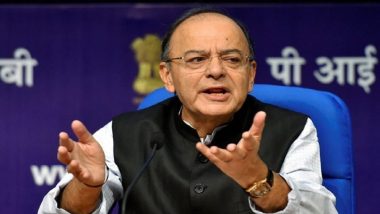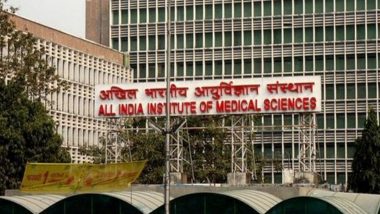New Delhi, March 10: The all-powerful GST Council today decided to rollout the requirement of carrying an electronically generated bill for transporting goods between states from April 1 but failed to arrive at a consensus on simplification of tax returning filing procedure for businesses. With states divided on the simplification of return filing procedures, the present filing system was extended for another three months. A Group of Ministers will work on model for further simplification of returns.
Finance Minister Arun Jaitley said that while tax officials from the Centre and the states wanted that the return should be simple, they also wanted that it should check evasion. "There was a detailed discussion. The Council felt that there should be single return every month, it should be simple, not prone to evasion and (there was a need to discuss) how to simplify it further. So no decision was taken today. The existing system has been extended by three months," he told reporters after the Council's meeting. Accordingly, businesses will continue to file summary sales returns GSTR-3B and final sales return GSTR-1 till June.
Jaitley said from April 1, e-way will be implemented for inter-state transportation of goods. However, there would be phased rollout of e-way bill for intra-state movement of goods beginning April 15 and all the states have been divided into four groups. Wary of system collapsing like it happened when the e-way bill was first introduced on February 1, the Council decided to rollout the requirement of carrying the permit for intra-state movement in a staggered manner. The first group of states to roll out of intra-state e-way bill from April 15 will be decided on April 7. All the states will have the system in place by June 1.
The e-way bill, which would be required to be presented to a GST inspector if asked for, is being touted as an anti-evasion measure and would help boost tax collections by clamping down on trade that currently happens on cash basis. With E-way bill roll out, from April 1, transporters of goods worth over Rs 50,000 will have to generate an e-way bill. Besides, the GST Council also decided to implement e-wallet scheme for giving refunds to exporters under GST by October 1, 2018 -- the date till which exporters can continue to claim tax exemptions given by the Council in its October 6 meeting. Accordingly, merchant exporters can pay a tax at the rate of 0.1 per cent on goods procured for export purposes and obtain a refund for the same. Also, domestic procurement made under Advance Authorisation, EPCG and EOU schemes are being recognised as 'deemed exports' with flexibility for either the suppliers or the exporters being able to claim a refund of GST/IGST paid thereon.
The Council also suspended till June 30 the provision for deduction of TDS and collection of TCS, as well as implementation of the reverse charge mechanism. Besides, the GST implementation committee has been tasked with the work of redressing grievances caused to taxpayers arising out of IT glitches. Deloitte India Senior Director Saloni Roy said, "The proposal of introducing intra-state e-way bills in a staggered manner is a more pragmatic approach".













 Quickly
Quickly





















